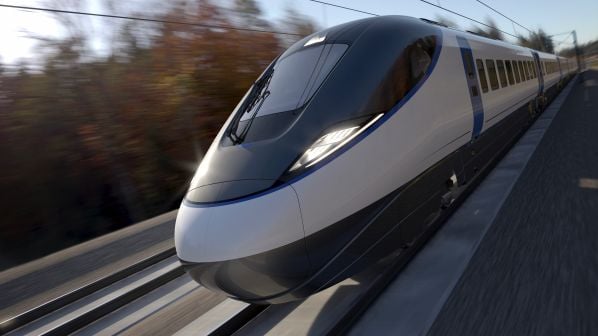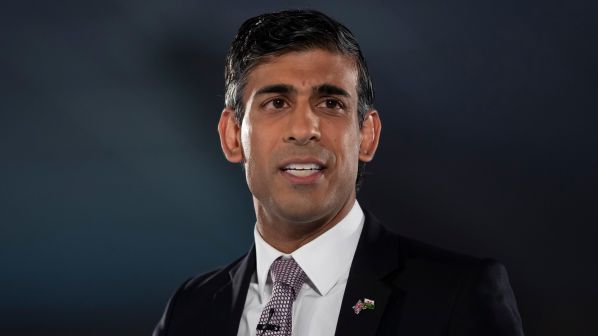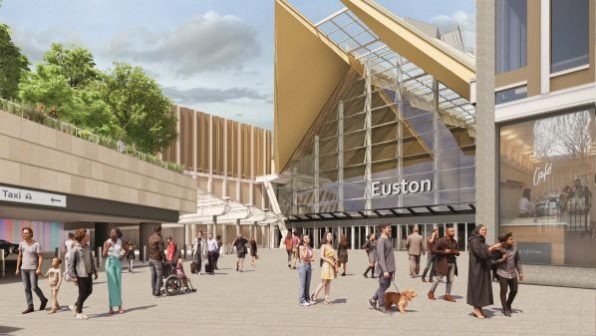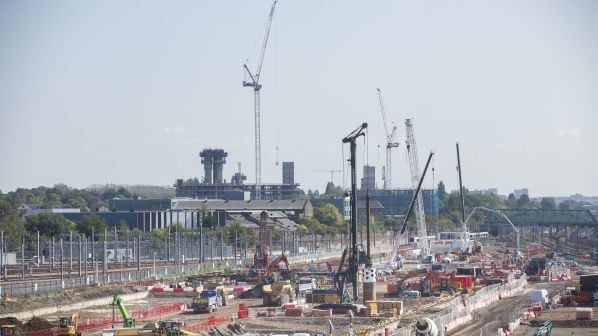BRITAIN’s prime minister, Mr Rishi Sunak, ended weeks of speculation on October 4 when he made the widely-trailed announcement that his government has decided to scrap the Birmingham - Manchester section of the HS2 high-speed line.
During his speech at the Conservative Party conference in Manchester, Sunak said that HS2 had experienced cost overruns and that the original plan to extend the line to Manchester no longer made economic sense.
“The facts have changed, and the right thing to do when the facts change is to have the courage to change direction,” he said.
“As a result of the decision we’re taking today, every region outside of London will receive the same or more government investment than they would have done under HS2 with quicker results.”
According to the Prime Minister’s Office, every £1 spent on HS2 was originally forecast to deliver £2.30 in taxpayer benefits. Despite revising the scope of the project, including scrapping the proposed eastern leg to Leeds, the benefits could fall to as low as £0.80 for every £1 spent.
At the same time, the government says that the original cost:benefit ratio for HS2 was underpinned by assumptions “which are no longer valid.”
It says that the Covid-19 pandemic has completely changed travel patterns and business travel by rail is currently around half of 2019 levels, pointing out that “the majority of public transport journeys continue to be taken by bus,” amounting to 3 billion a year.
In response to earlier reports that the government would scrap the Manchester section of HS2, the Railway Industry Association (RIA) which represents Britain’s rail supply sector pointed to Department for Transport (DfT) data showing that passenger numbers are now significantly higher than when HS2 was originally approved in 2012.
From April 2022 to March 2023 overall rail passenger numbers were the same as in 2012 and have been around 15% higher since April 2023, continuing to rise after the Covid-19 pandemic. Ridership has risen to 83% of 2019-20 levels in Quarter 4 of 2022, rising to 91% in Q1 2023, 96% in Q2 and Q3 and reaching over 100% on 14 out of the 30 days of April 2023.
HS2 currently accounts for over one third of the government’s total transport investment, which it says is preventing it from “spending on people’s genuine priorities and doing little to improve the journeys that people make the most.”
The government says it will complete Phase 1 of HS2 where significant construction is already underway, cutting journey times from Birmingham to central London from around 80 minutes to 49 minutes.
There will be stations at Old Oak Common and Birmingham Interchange, and branches to central Birmingham and Handsacre, near Lichfield, where HS2 trains for Manchester, Liverpool and Scotland will join the existing West Coast Main Line (WCML).
“This will have a transformative effect on rail capacity, nearly allowing up to 250,000 passengers to travel every day,” the government says.
Sunak said that HS2 would still have a central London terminus at Euston, rather than terminating at Old Oak Common in the western suburbs as had been suggested, but that rebuilding work at Euston would be taken out of the hands of high-speed project organisation HS2 Ltd and handed over to the new Euston Development Zone.
The government says that it will oversee a change in leadership of the Euston project “to ensure maximum value for the taxpayer, while attracting private investment to build a world-class station.” At the same time, it expects the rebuilding programme “to unlock growth potential for London and deliver thousands of additional homes at Euston.”
This will release more than £6bn to invest in transport projects right across England and Wales, according to the government, “delivering road, rail and bus upgrades in communities that were never set to benefit from HS2.”
How the £36bn saving will be spent
The cornerstone of the government’s plan to reallocate the £36bn saved by not taking HS2 to Manchester is a new project called Network North, which is intended to drive better connectivity across the north and Midlands of England through faster journey times, increased capacity and more frequent, reliable services.
The government says that over 4 million people in cities in northern England cannot currently reach their city centre by public transport within 30 minutes, which is detrimental to productivity and economic growth. Rail accounts for only 8% of total distance travelled and 2% of all journeys, it points out.
A total of £19.8bn will be reinvested in northern England, including bus and road projects. Rail spending will include £2bn for a new station at Bradford and a new connection to Manchester, and £3bn to upgrade and electrify the Manchester - Sheffield, Sheffield - Leeds, Sheffield - Hull and Hull - Leeds routes.
Nearly £4bn in additional funding will be provided for local transport in the six city regions of northern England, and £2.5bn has been allocated to deliver a new mass transit system in West Yorkshire. The government also promises “landmark investments” in reopening railway lines and new stations.
In addition to the £19.8bn for northern England, a further £12bn will be invested to improve connections between Manchester and Liverpool. “This would allow the delivery of Northern Powerhouse Rail as previously planned, including high-speed lines,” according to the government.
In the Midlands, a total of £9.6bn will be reinvested. This will include £1.75bn to fully fund the Midlands Rail Hub programme centred on Birmingham, connecting 50 stations and over 7 million people while doubling capacity and frequency.
Over £1bn of additional extra local transport funding is promised for the West Midlands City Region, while other projects to benefit will include new stations and railway reopening projects such as the Ivanhoe Line from Leicester to Coalville and Burton-on-Trent.
The remainder of England and Wales will receive £6.5bn in new funding from the decision to cancel HS2 to Manchester. Rail projects to be funded from this allocation will include improvements in southwest England and remodelling Ely Junction north of Cambridge to increase freight capacity between the Midlands and the Port of Felixstowe.
Electrification of the 202km North Wales Main Line from Crewe to Chester and Holyhead will receive £1bn.




